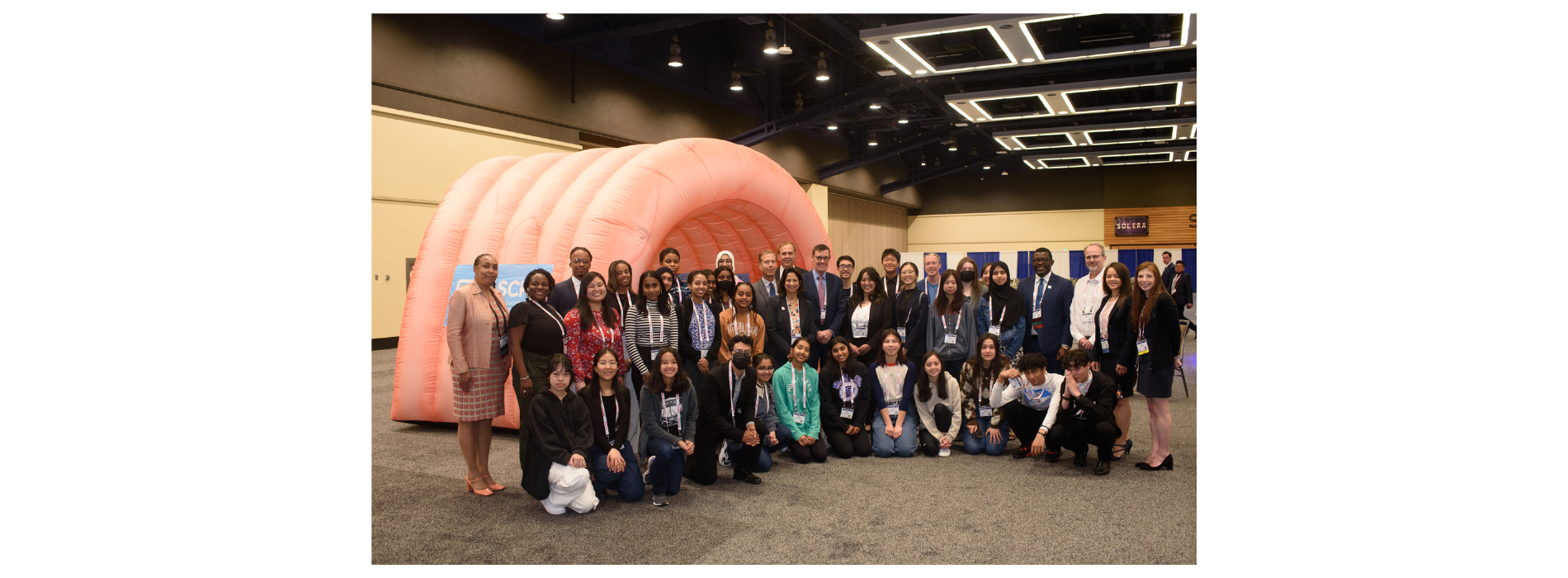The American Society of Colon and Rectal Surgeons (ASCRS) hosted an immersive one-day pathway program for 35 Seattle-area high school, medical, and college students interested in the field of surgery during the society's 2023 Annual Scientific Meeting in Seattle, Washington on June 4, 2023.
_1.png?width=1000&height=368) The ASCRS Diversity, Equality, and Inclusion (DEI) Committee led this program for students. Industry partners Applied Medical, Cook Biotech, Ethicon, Intuitive, Medtronic, Olympus, and Takeda Pharmaceuticals also participated in the program by providing hands-on surgical robotics, suturing stations and presentations about technology within the specialty. Other program support was provided by the Colorectal Cancer Alliance and Tour 4 Diversity.
The ASCRS Diversity, Equality, and Inclusion (DEI) Committee led this program for students. Industry partners Applied Medical, Cook Biotech, Ethicon, Intuitive, Medtronic, Olympus, and Takeda Pharmaceuticals also participated in the program by providing hands-on surgical robotics, suturing stations and presentations about technology within the specialty. Other program support was provided by the Colorectal Cancer Alliance and Tour 4 Diversity.
The program kicked off with a welcome breakfast for students and their parents, while they listened to life stories and medical school journeys from Dr. Sharon Dykes, Dr. Martin Uwah, and Dr. Carolina Martinez. Students and parents took a walk through a 12-foot-by-12-foot inflatable colon that displayed descriptive banners next to disease replicas, intended to spark conversation and increase awareness of colon health. Additionally, students attended sessions that promoted awareness for making healthy lifestyle choices, understanding the importance of colon health, and breaking the status quo when it comes to diversity in the colorectal field. Students concluded the day with a lesson on suturing, using kits donated by THD America followed by a friendly suturing competition.
_1.png?width=1000&height=368)
The DEI Committee's mission is to help ASCRS provide diverse and equitable care to patients and create a diverse colorectal workforce. Sharing information on the medical and surgical fields with curious young minds goes beyond making a difference in the colorectal surgery field.
“Seeing this inspires me to move forward. Even if you don’t want to go into medicine, just having the drive to do something like this (program) is going to translate to whatever you do want to do.” Dr. Martin Uwah stated during his talk to students.
ASCRS will host its next student pathway program in Baltimore, Maryland, at the ASCRS 2024 Annual Scientific Meeting.